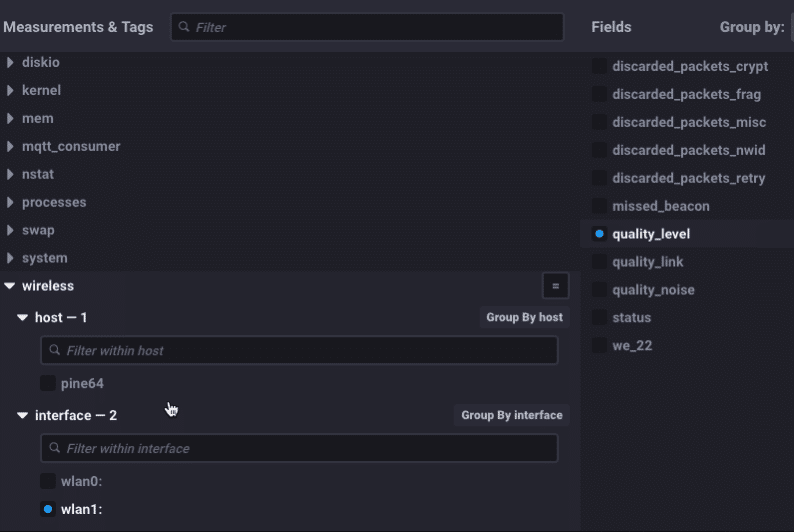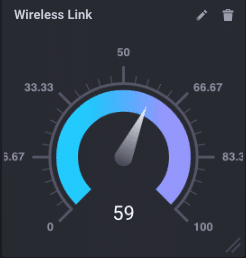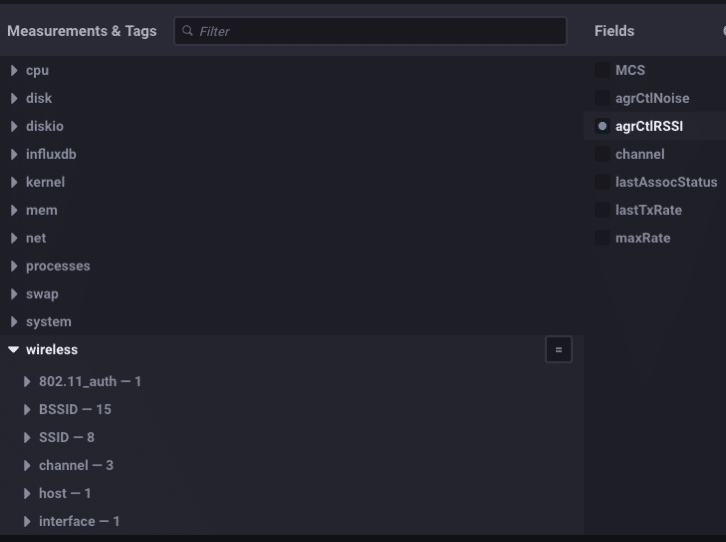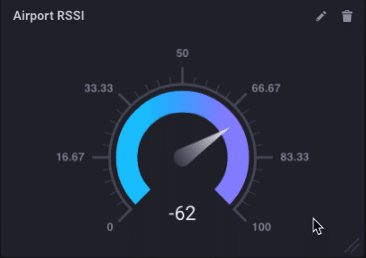If you've followed my last few posts, you'll see that I've been waist-deep in routers and wireless stuff. I'm building a larger, more complicated "reference architecture" for IoT monitoring with InfluxDB, and to do that, I'm using all sorts of different boxes. I'm re-using my Pine-64 box (see here) and I wanted to be able to monitor the stats of the Wireless interface. Turns out, there was no Telegraf Plugin for that! WHAT??!?! So I wrote one.
If you've ever done a cat /proc/net/wireless you'll know that, while the output is straightforward and helpful, someone decided that a 2-line header was a great idea. It wasn't.
ubuntu@pine64:~$ cat /proc/net/wireless
Inter-| sta-| Quality | Discarded packets | Missed | WE
face | tus | link level noise | nwid crypt frag retry misc | beacon | 22
wlan0: 0000 0. -256. -256. 0 0 0 0 0 0
wlan1: 0000 42. -73. -256. 0 0 0 0 0 0
ubuntu@pine64:~$I mean, it looks nice and all that, but it really wasn't meant to be easily parsed into something meaningful. Anyway, since I was embarking on writing another Telegraf plugin, parsing it was exactly what I was going to need to do. This is the spaghetti I had to write to parse that header and put it together into something that would be meaningful to store in InfluxDB:
func loadWirelessTable(table []byte, dumpZeros bool) (map[string]interface{}, map[string]string, error) {
metrics := map[string]interface{}{}
tags := map[string]string{}
myLines := strings.Split(string(table), "\n")
for x := 0; x < len(myLines)-1; x++ {
f := strings.SplitN(myLines[x], ":", 2)
f[0] = strings.Trim(f[0], " ")
f[1] = strings.Trim(f[1], " ")
if f[0] == "BSSID" {
tags[strings.Replace(strings.Trim(f[0], " "), " ", "_", -1)] = strings.Replace(strings.Trim(string(f[1]), " "), " ", "_", -1)
continue
}
n, err := strconv.ParseInt(strings.Trim(f[1], " "), 10, 64)
if err != nil {
tags[strings.Replace(strings.Trim(f[0], " "), " ", "_", -1)] = strings.Replace(strings.Trim(f[1], " "), " ", "_", -1)
continue
}
if n == 0 {
if dumpZeros {
continue
}
}
metrics[strings.Trim(f[0], " ")] = n
}
tags["interface"] = "airport"
return metrics, tags, nil
}All of that so that we can see this:

...in Chronograf! Nice! Notice how I turned the multi-line header into distinct values for quality_level, etc. and made them InfluxDB-friendly by replacing spaces with underscores, etc. We can now monitor all the various aspects of our Wireless interface(s)! So, since I'm running the latest version of Chronograf:

I have a handy gauge with the RSSI of my active wireless interface! Of course, since this new plugin (coming at some point to a version of Telegraf!) relies on /proc/net/wireless, it will only work for Linux.
But wait, I didn't forget about all of you Mac users out there. After a fair amount of google-fu, I found a roughly similar way to get wireless info from Mac OS. It's buried and not easily accessible but I dug it out for you. It formats the output in a much more reasonable way, making it super easy to get into InfluxDB:
$ /System/Library/PrivateFrameworks/Apple80211.framework/Versions/Current/Resources/airport -I
agrCtlRSSI: -63
agrExtRSSI: 0
agrCtlNoise: -95
agrExtNoise: 0
state: running
op mode: station
lastTxRate: 65
maxRate: 72
lastAssocStatus: 0
802.11 auth: open
link auth: wpa2-psk
BSSID: 36:c3:d2:e3:ed:8e
SSID: Influx-IoT2
MCS: 7
channel: 3
$
...which cuts the code to make that useful down considerably:
func loadWirelessTable(table []byte, dumpZeros bool) (map[string]interface{}, map[string]string, error) {
metrics := map[string]interface{}{}
tags := map[string]string{}
myLines := strings.Split(string(table), "\n")
for x := 0; x < len(myLines)-1; x++ {
f := strings.SplitN(myLines[x], ":", 2)
f[0] = strings.Trim(f[0], " ")
f[1] = strings.Trim(f[1], " ")
if f[0] == "BSSID" {
tags[strings.Replace(strings.Trim(f[0], " "), " ", "_", -1)] = strings.Replace(strings.Trim(string(f[1]), " "), " ", "_", -1)
continue
}
n, err := strconv.ParseInt(strings.Trim(f[1], " "), 10, 64)
if err != nil {
tags[strings.Replace(strings.Trim(f[0], " "), " ", "_", -1)] = strings.Replace(strings.Trim(f[1], " "), " ", "_", -1)
continue
}
if n == 0 {
if dumpZeros {
continue
}
}
metrics[strings.Trim(f[0], " ")] = n
}
tags["interface"] = "airport"
return metrics, tags, nil
}Much more reasonable, don't you think? It turns all those readings into nice tags and fields:

And gives me a similar gauge on my Mac:

Pretty nifty!
Now, you're probably wondering why I went to all this trouble just to be able to monitor the RSSI of a wireless interface. And that's a great question! You see, in the world of IoT, you are going to have gateway devices out there that will be gathering data via wireless interfaces — you know, to connect with wireless sensors. So it's important to be able to monitor the health and activity of those wireless interfaces. I added the Mac one just because it was easy and I wanted it.
So, stay tuned. I'll be adding a number of blog posts on the sensors I'm connecting to this wireless gateway data collector. It's actually part of a bigger project of building out a larger, more industrial-focused IoT demo platform.